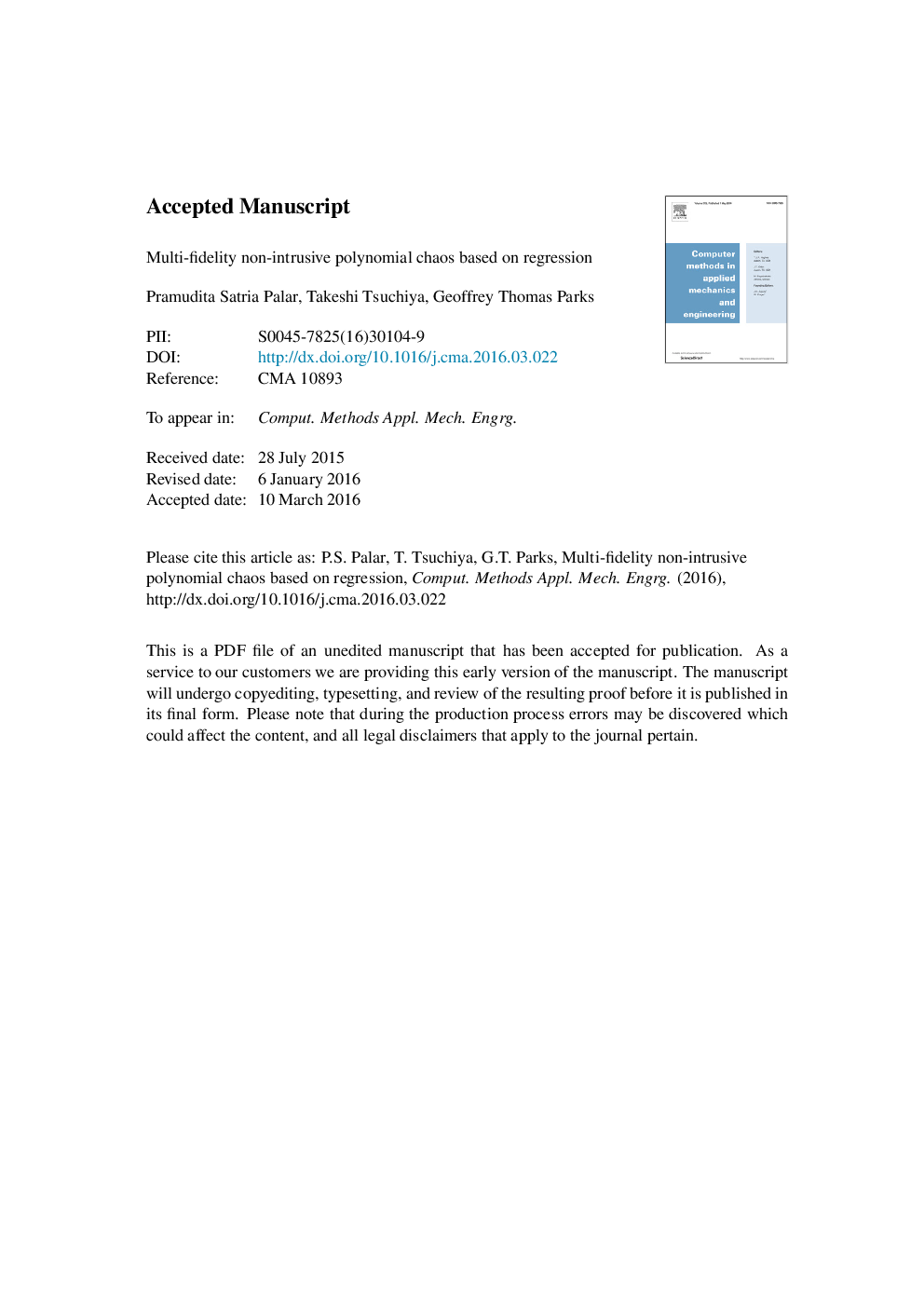| Article ID | Journal | Published Year | Pages | File Type |
|---|---|---|---|---|
| 6916238 | Computer Methods in Applied Mechanics and Engineering | 2016 | 42 Pages |
Abstract
In this paper we present a multi-fidelity (MF) extension of non-intrusive polynomial chaos based on regression (point collocation) for uncertainty quantification purposes. The proposed method uses the principle of a global correction function from a previous similar method that uses spectral projection to estimate the coefficients. Due to its usage of regression to estimate the coefficients, the present method offers high flexibility in the sampling and generation of the polynomial basis. The method takes advantage of a nested sampling plan to create the samples for the low-fidelity (LF) and correction expansions where the high-fidelity (HF) samples are a subset of the LF ones. To build the polynomial basis, a total order or hyperbolic truncation strategy is used with a highly flexible combination of the LF and correction polynomial expansions. The method is demonstrated on some artificial test problems and aerodynamic problems of the Euler flow around an airfoil and common three-dimensional research models. In order to derive the strategies for successful MF approximation, the effect of the correlation and the errors between the LF and HF functions is also studied. The results show that high correlation and moderately low errors are important to improve the MF approximation's accuracy. On a common research model problem, the MF approach with partially-converged simulations as the LF samples can successfully reduce the computational cost to about 40% for similar accuracy compared to an approach using a single HF expansion.
Related Topics
Physical Sciences and Engineering
Computer Science
Computer Science Applications
Authors
Pramudita Satria Palar, Takeshi Tsuchiya, Geoffrey Thomas Parks,
